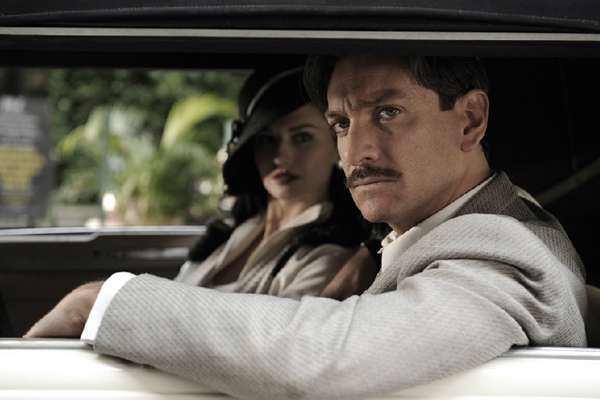Fabrizio Costa / Italy / 2012 / 624 minutes (12 episodes)
The detective story, it seems, will never die – and the period detective in particular seems to have a knotweed stranglehold on the imagination (blame Philip Marlowe). Mario Nardone is the Italian version, who displays many of the usual characteristics of the species: the heart of gold, the soft centre hidden by steely cynicism, handsome but misunderstood and always battling corrupt colleagues. Naturally, his unwillingness to compromise puts him at odds with his superiors.
Nardone is from Naples, that festering southern Italian port city long famed for its street crime and violence, yet our hero finds himself transferred to Milan in the north. It’s the late 1940s, a time of shortages, black markets and flapping raincoats (and enough moustaches for a year of Movembers). But this is not drama from the costume department. Nardone was a real life cop who made a name for himself as a stickler for the truth; an outsider who sidestepped his superiors to get his man. The series, however, never quite captures the grim austerity of battered war-torn Italy where the economic miracle of the ’50s, made the country’s reversal of fortune all the more surprising.
The power cuts, black markets and food shortages are all here, but it’s all too sunny and luscious to look at. This is primetime fare with snap-brim fedoras like those in Lewis or Marple, but, refreshingly, Inspector Nardone doesn’t have that cloying and tiresome class overtone that so bedevils British TV. Sergio Assisi makes an excellent Nardone – a lantern jawed and rather unsophisticated character whose old fashioned Neopolitan views are forever getting him into trouble. ‘Why do I have such a southern mentality?’ he asks at one point.
Each episode is nicely rendered thanks to skilled director Fabrizio Costa, and there’s usually a neat twist in the tale.
